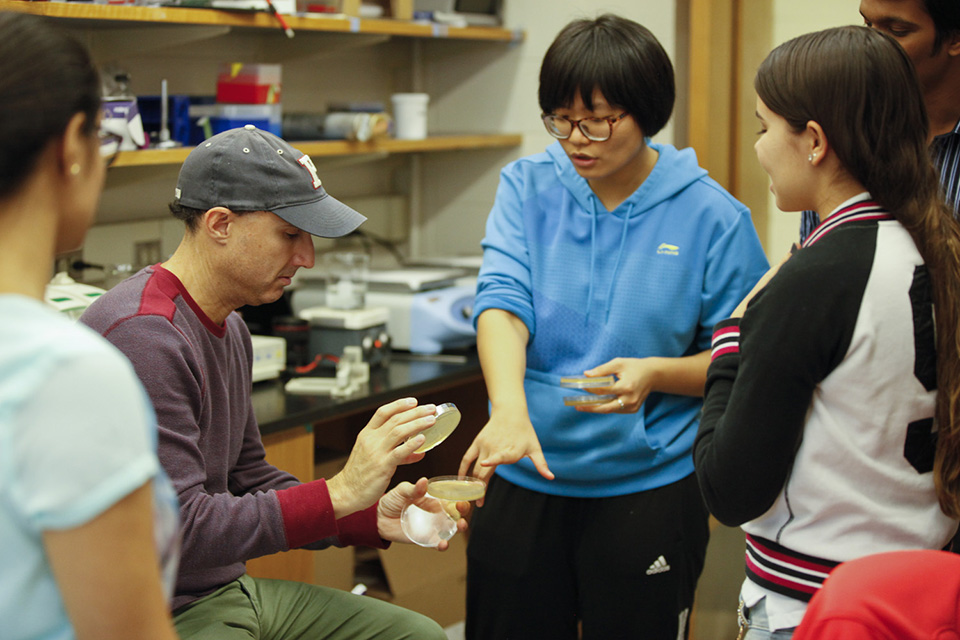Program Overview

The Professional Science Master’s Program in Biotechnology combines the teaching of current concepts in biology and business with training in professional skills and ethics. These elements are the foundations of careers in the biotechnology and pharmaceutical industries. The biology segment emphasizes hands-on learning in project laboratories and internships. Business courses foster team approaches to problem solving. Skills seminars focus on writing, on analyzing and presenting data, and on oral communication. Students are individually advised and mentored, and counseled on their career goals and opportunities. The program includes two years of in-residence courses at Brandeis University and a summer internship.
Year One
The core of the first year is the Biotechnology Proseminar and the Management for Biotechnology class. Biotechnology Proseminar develops skills in data analysis and in writing and speaking for both scientific and general audiences. Management for Biotechnology prepares students to think critically about management problems and propose solutions based upon principles in accounting, finance, organizational behavior, strategy, project management, and marketing.
Project Research Laboratories guide students through projects with unknown outcomes. After mastering core techniques, students design experiments, analyze data, and refine experimental design. The Biotechnology Project Laboratory focuses on nucleic acids and the Biochemistry Laboratory on proteins.
A Molecular Biotechnology course anchors the first year lecture classes, and two further courses are chosen from graduate level classes in Cell Biology, Structural Biology and Biochemistry.
Summer Internship
In the summer between the first and second years of the MS program, students are required to find an internship in a company, not-for-profit research institution, or academic research laboratory. There are numerous opportunities close to Brandeis, and many students find their employers through the Massachusetts Life Sciences Center Internship Challenge.
Year Two
Returning students present their internship projects in a symposium for an audience of faculty members, industry guests and first year students.
Students take business and science electives and the core course Business of Biotechnology. The Business of Biotechnology seminar uses case studies and speakers from industry to give an overview of the medical, agricultural, and manufacturing sectors and to introduce research and development models, regulation, financing and marketing.
Students may elect to take additional Project Laboratories or choose from classroom courses in biology and business, which might include Molecular Biology, Microbiology, Molecular Pharmacology, Protein Structure and Disease, Biostatistics, Human Genetics, Neurobiology of Human Disease, Growth Control and Cancer, Stem Cells, Human Reproductive and Developmental Biology, Enzyme Mechanisms, Quantitative Approaches to Biochemistry, Entrepreneurship, Management Communication, Managing Global Human Capital, and Marketing.
Mentoring and Career Guidance
The program directors and course instructors individually advise and mentor students. The Center for Career and Professional Development at the Graduate School of Arts and Sciences and the Hiatt Career Center provide career guidance one-on-one and with workshops. They also help with alumni networking and organize employer visits.
Leave of Absence
Sometimes it is necessary for a graduate student to request a health leave of absence, personal leave of absence, pregnancy accommodation, or parental relief. The procedures for requesting a leave can be found on the GSAS website.